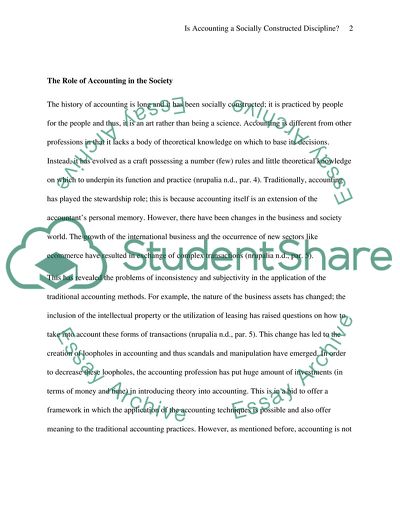Cite this document
(Critically consider whether accounting is a socially constructed Essay, n.d.)
Critically consider whether accounting is a socially constructed Essay. https://studentshare.org/finance-accounting/1755456-critically-consider-whether-accounting-is-a-socially-constructed-discipline
Critically consider whether accounting is a socially constructed Essay. https://studentshare.org/finance-accounting/1755456-critically-consider-whether-accounting-is-a-socially-constructed-discipline
(Critically Consider Whether Accounting Is a Socially Constructed Essay)
Critically Consider Whether Accounting Is a Socially Constructed Essay. https://studentshare.org/finance-accounting/1755456-critically-consider-whether-accounting-is-a-socially-constructed-discipline.
Critically Consider Whether Accounting Is a Socially Constructed Essay. https://studentshare.org/finance-accounting/1755456-critically-consider-whether-accounting-is-a-socially-constructed-discipline.
“Critically Consider Whether Accounting Is a Socially Constructed Essay”. https://studentshare.org/finance-accounting/1755456-critically-consider-whether-accounting-is-a-socially-constructed-discipline.


